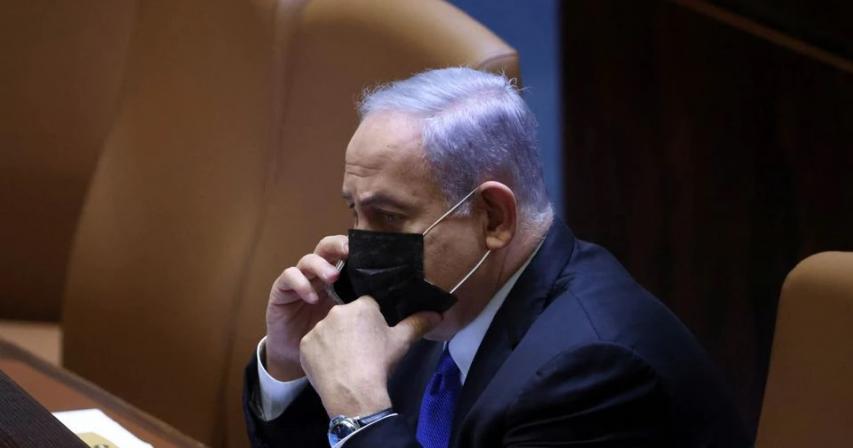Israeli opposition announces new government, set to unseat Netanyahu
- 4 years ago

Israeli Prime Minister Benjamin Netanyahu on Thursday scorned as “dangerous” and “left-wing” a cross-partisan coalition cobbled together by his rivals to unseat him, even as the nationalist named to lead it echoed his hard line on the Palestinians.
Netanyahu, facing the prospect of an end to his 12-year run as premier, mounted the social media attack the day after centrist opposition leader Yair Lapid's announcement, about 35 minutes before a Wednesday night deadline, that he had succeeded in forming a governing coalition.
Under the deal, nationalist Naftali Bennett, 49, a former defence minister and a high-tech millionaire, would become prime minister and hand over the post to Lapid, 57, a former TV host and finance minister, in about two years.
A parliamentary session, in which the government can be approved by a simple majority, could be up to 12 days away, far-right politician Avigdor Lieberman, a member of the new coalition, said.
With parliament's Speaker, a Netanyahu loyalist, widely expected to try to ward off any legislative attempts to hold the vote earlier, the prime minister could use the period to try to twist arms.
"All legislators elected by votes from the right must oppose this dangerous left-wing government," Netanyahu tweeted, in rhetoric aimed at drawing defectors from Bennett's slate.
Yet Bennett set out positions on Israel's most immediate foreign and security policy problem - how and if to accommodate Palestinians' statehood goal - that hewed close to Netanyahu's.
"The national struggle between Israel and the Palestinians is not over territory. The Palestinians do not recognise our very existence here, and it appears this will be the case for some time," the prime minister-designate said in an interview.
"My thinking in this context is to shrink the conflict. We will not resolve it. But wherever we can (improve conditions) - more crossing points, more quality of life, more business, more industry - we will do so," he told Channel 12 TV.
The coalition agreement capped a March 23 election in which neither Netanyahu's Likud party and its allies nor their opponents won a majority in the legislature. It was Israel's fourth national ballot in two years.
The governing lineup comprises a patchwork of small and medium-sized parties from across the political spectrum, including for the first time in Israel's history one that represents its 21% Arab minority - the United Arab List (UAL).
On Twitter, Netanyahu - who once drew accusations of racism by urging his supporters to get out and vote because "Arabs are flocking to the polls in droves" - highlighted the new alliance's links with UAL leader Mansour Abbas.
Despite the UAL's pro-Palestinian sympathies, Bennett said his planned government would have a free hand militarily - including in Gaza, where Israel clashed with Hamas last month.
Comments